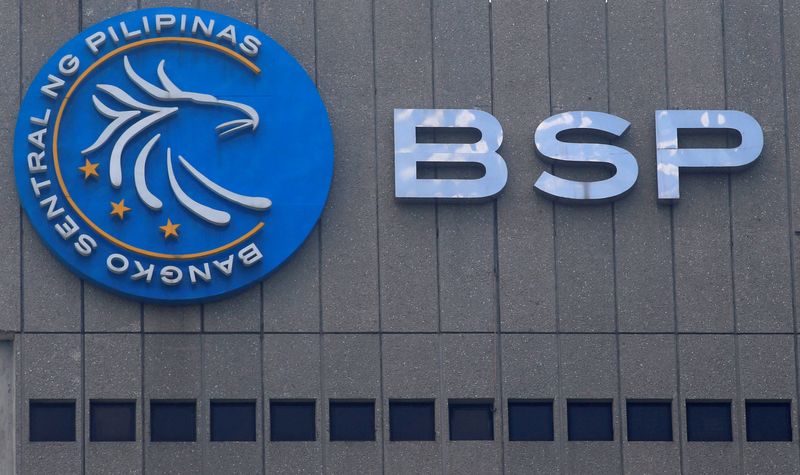By Shaloo Shrivastava and Devayani Sathyan
BENGALURU – The Philippines central bank will leave policy on hold at Thursday’s meeting to support a nascent recovery, despite a recent U.S. Federal Reserve rate hike and surging commodity prices since Russia’s invasion of Ukraine, a Reuters poll found.
Governor Benjamin Diokno said last week monetary policy would remain accommodative and data-dependent so the central bank may not necessarily follow the Fed.
The Bangko Sentral ng Pilipinas (BSP) also has room to wait as inflation in the Philippines is within the central bank’s target range of 2% to 4%.
“BSP, in our view, believes economic output will return to its pre-COVID level later this year, setting the stage for the start of its hiking cycle in Q4,” noted economists at Nomura.
All 17 economists in a March 15-21 poll expected the overnight reverse repurchase facility to stay at a record low 2.00% at the March 24 meeting. But it was predicted to move up 50 basis points in the last quarter of the year to 2.50%, matching predictions in a February poll.
However, rising commodity prices due to the Russia-Ukraine war are likely to drive up inflation in the Philippines, a net importer of crude oil, increasing the potential for an earlier rate hike. Indeed, a significant minority of economists, eight of 17, penciled in a hike in the third quarter.
“Rising commodity prices and their implications for the growth and inflation mix have put the BSP in a tight spot,” said Debalika Sarkar, economist at ANZ.
“In its own assessment, annual inflation will overshoot the upper bound of the 2-4% target range this year if average oil prices settle north of $95/barrel.”
Expectations for a subsequent rate hike to 2.75% were brought forward to Q1 2023 from Q2 2023 in the last poll.
The Philippines peso, which has fallen around 3% since the start of the year, slipped on Friday after the central bank signaled it was in no hurry to raise interest rates. Some analysts say currency weakness may still trigger a rate rise.
“BSP will need to adjust monetary policy to shore up the flagging currency, which in turn will help prevent the build up of imported inflation,” said Nicholas Mapa, senior economist at ING. Mapa is expecting 100 basis points hike by year-end.
(Reporting by Shaloo Shrivastava and Devayani Sathyan; Polling by Md. Manzer Hussain and Arsh Mogre; editing by Jonathan Oatis)
